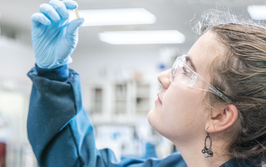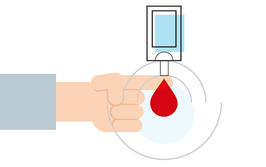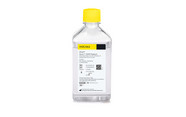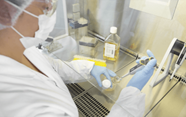Pharma Logistics 101: Up, Up and Away?
Alan Kennedy is the founder and executive director of Pharma TEAM-UP, a not-for-profit organization seeking to get pharma companies working together on logistics. Here, Kennedy gives an introduction to the sector and discusses where improvements could be made.
Keeping meticulously manufactured pharmaceutical products in tip-top (aka undamaged and therapeutically effective) condition during their long and often arduous journey to market can be a complex, risky, and expensive business. Once outside the sterile surroundings of a manufacturing or filling environment, the risk of product contamination or deterioration escalates dramatically. The lower deck conditions of a Boeing plane or the inside of a typical intermodal freight container are a long way from the GMP-validated cleanrooms and controlled laminar-flow environments of the pharma production environment. The handling of temperature-controlled pharmaceutical products in particular is a complicated business and presents unique challenges. According to the International Air Transport Association (IATA), the global pharmaceuticals logistics market is valued at $64 billion and is one of the most regulated, expensive and fragile cargo markets in the world today.
Pharma logistics usually involves one or a combination of three different transport modes:
- Road – by far the most widespread method (air and sea freight both involve road feeder steps).
- Air – used for a high proportion of very-long-distance and intercontinental distribution on account of its speed and flexibility, but it is expensive.
- Ocean – there has been a substantial shift of intercontinental pharma freight from air to sea over the past five years. Sea freight is a fraction of the cost (around 20 – 25 percent) of air and is inherently safer and more reliable. One company in the vanguard of this modal shift is AstraZeneca, which has succeeded in moving their air to sea ratio from 19:1 in 2012 to 3:7 today (or, in other words, they have moved from having 5 percent ocean freight in 2012 to 70 percent in 2018).
There is also a very small volume of pharma that travels by rail. However, this may change over the coming years as the “New Silk Road” (and rail) route between Asia and Europe is established.
I remember a time when pharma logistics was pharma’s “forgotten baby.” The physical distribution element of the pharma supply chain was perceived as a necessary evil and, as its impact on overall cost was relatively low, top management paid it scant attention. Fast-forward to the present and logistics is rapidly becoming about much more than just cost, capability, and rates. Recently, growing regulatory and financial pressures, plus the need to address a very high – and seemingly intractable – incidence of product deterioration during transportation, has forced companies to think hard about logistics. In fact, the industry is beginning to recognize the potential for logistics as a value-creating process as opposed to a perpetual cash-drain. This new focus is partly a result of the success of supply-chain driven companies, such as Inditex and Amazon – the latter has based its entire business around disrupting logistics models. And before too long, the digital revolution and other technical progress will shake up the logistics status quo – and in a big way!
I believe big data and new technology is going to transform pharma logistics. By harnessing, and often combining, the latest technologies, many doors to hitherto stubborn problems will open. Real-time track, trace and temperature monitoring, end-to-end supply chain integration, omni-channel supply models, demand-based/make-to-order supply systems, value-based alternative-care models and innovative pricing/payment systems are just some of the solutions that require modern technology to succeed. Blockchain is another high-profile technology that holds much potential for securing supply chains and their associated transactional ledgers (if the digital community’s promises in this regard stack-up in practice).
Big data acquisition and analysis, together with “evidence-based medicine” have serious implications for cost and time reductions, new product development and optimized offerings, as well as smarter business decision making. Some supply chain areas of big data application include performance improvements in temperature, location, and security, as well as demand fulfilment and generation, such as real-time sensors, stock-movement information, patient diagnosis, drug efficacy data, and so on.
You may be thinking all of this sounds very exciting and positive – and it is, but with the availability of mass supply chain data comes the need for intelligent interpretation of the continuous information stream. A greater problem is the fact that pharma and logistics are very uneasy bedfellows. The combination of the congenitally risk-averse pharma industry with the notoriously stubborn, slow to change and highly fragmented logistics industry is not exactly a marriage made in heaven! An example of the latter is the adoption of the common, digital airway bill (e-AWB); despite the logically unassailable benefits of switching from paper-based airway bills to electronic airway bills, the take-up has flat-lined at just 50 percent – after more than a decade of heavy promotion and exhortation from governments and IATA.
The global regulatory environment for pharmaceuticals is also in a state of flux with scrutiny on the increase and global harmonization still a far-off dream. For example, the 2014 revision of the EU Good Distribution practice, which, inter alia, extended regulatory oversight to CRT (controlled room temperature) pharmaceuticals, has had major repercussions and is still being assimilated. Similarly, the consequences of the legislation covering product track, trace and serialization currently being introduced on a staggered basis (and sadly to different specifications) in the US and Europe is proving an even higher hurdle to overcome.
The industry needs to harness its collective strength to resolve many of the huge challenges it faces in today’s era of increasing digitization and disruption. Pharmaceutical companies must set aside their deep-rooted “no sleeping with the enemy” mentality founded around competitive fears and misplaced concerns about anti-trust. By taking a few of the by now well-thumbed pages out of the collaboration manuals of more progressive sectors, the pharma industry could get all the visibility, efficiency, agility, customer-centricity and control that it needs. And though the majority of pharma businesses in this field will, no doubt, be unable or unwilling to rise to the occasion, those that do will be opening the doors to huge opportunities and an unquestionable competitive advantage.
The Poseidon Adventure
Lacking sufficient product to fill a container is a major sticking point for pharma companies looking to move to sea freight. Poseidon consolidates small loads with other pharmaceuticals and sends them on a dedicated pharmaceutical service.
With Alan Kennedy
Poseidon came about from a small meeting of like-minded individuals at the European Temperature Controlled Logistics Conference in January 2017. The consensus? Supply chain stakeholders would need to become more intimately aligned if there was to be any degree of across-the-board improvement in the pharma cold chain.
The Poseidon reform model was conceived and built around some of the principles of supply chain collaboration and integration that are being successfully applied in other industries. Poseidon takes the form of a supply network (as opposed to a supply chain), comprising all the actors involved in transporting a pharma product. It is a pharmaco-driven program that has been designed from the ground up, with the shipper, the logistics companies and suppliers all sat around the same table as equal partners.
A network partner agreement governs the relationships between all parties and they work together as a single team with common goals, rules and performance incentives. At the heart of the program is the Poseidon Management Group (PMG), a democratic body comprised of senior representatives from each of the participant organizations. The PMG is responsible for the strategic direction of the program, while an additional neutral company manages the operational side of the initiative and provides a “filter and sanitize” function to facilitate the sharing of data, the consolidation of shipping loads, and the sharing of assets.
Poseidon is a very important development because it is the very first time that an end-to-end integrated network has been put in place in the pharma logistics arena. There is always much talk and passion surrounding the idea of supply-chain integration and collaboration but, until now, no-one in pharma logistics has succeeded in translating these aspirations into a viable, scalable, transferable, and sustainable business model; one that is all-inclusive, equitably governed and market focused.
The “Poseidon Adventure” that is about to commence rewrites the rules around pharma sea freight and the logistics supply chain. The organizations that are supporting this initiative deserve huge credit for putting their faith and energy behind this momentous collaboration initiative, which has the potential to remedy many of the ills now facing the pharma sector. In addition, the Poseidon model will hopefully be a stimulus and a template for others in their quest for more efficient, more competitive and more concerted supply chains that are fit for purpose in today’s rapidly changing environment.
Alan Kennedy is the founder and executive director of Pharma TEAM-UP, a not-for-profit organization seeking to get pharma companies working together on logistics.


















